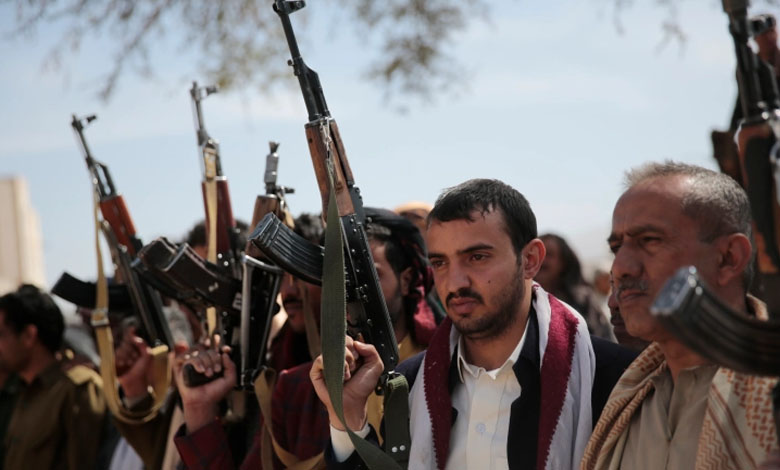UN inaction threatens the world with transcontinental Houthi terrorism

In an attempt to save Yemenis from Houthi crimes, the United Nations special envoy to Yemen, Hans Grundberg, announced that he will inform the Security Council of the developments of his efforts to renew the truce next week, amidst growing official and widespread anger among Yemenis at the Houthis’ repeated attacks on oil export ports and the weak international positions towards their terrorism. The Houthi militia rejected the envoy’s offer to extend and expand the collapsed truce, seeking to blackmail the legitimate government for economic and political gains, and threatening to continue terrorist attacks on oil export ports.
A fair reply
According to the London-based Middle East newspaper, the parliamentary statement called on the Presidential Command Council to do what is necessary to “teach the Houthi militia a lesson” and destroy their military capabilities as a “just” response to their “aggressive choices.” The statement also called for speedy decision-making to deter the Houthis, restore the state by all means and save the Yemeni people from the crimes they engage in on a daily basis. The parliament described international and Western efforts as “a waste of time”, where a number of officials in the legitimate government criticized the global recession and lack of action, which resorted to “issuing statements condemning” every Houthi escalation.
Tightening the blockade
Faisal Al Majidi, Deputy Minister of Justice of Yemen, said that there can be no “endless dialog” with the Houthis, recalling the series of talks and negotiations with the Houthis and the international resolutions that did not see the light of day. He added that Security Council Resolution 2216, issued in April 2015, emphasized in its preamble that the Secretary-General should submit a report every ten days on the implementation of the resolution, but this is not the case despite the subsequent resolutions that stressed the need to implement this resolution, which means that the United Nations and its envoy do not take time into consideration. According to the London newspaper, Al-Majidi reviewed the 2016 talks in Kuwait with international presence and representation, reminding the Iranian Road map to the political map signed by the government in Yemen, and the final agreement on the determination of the Yemeni militia, After six weeks of failed attempts to extend the truce, Al-Majidi proposed supporting the government by placing the Houthis on the international terrorism list, activating the agreements and protocols signed with Arab and Western countries in this regard, and canceling any international representation of the movement. The official stressed the importance of freezing the assets of the Houthi militia as an entity, not as individuals, tightening the blockade on weapons and smuggled Iranian oil, in addition to giving the “green light” to the legitimate government to implement the constitution and to retake Hodeidah and Sana’a in implementation of the Security Council resolutions issued under Chapter VII.
International failure
Mohammed al-Mekhlafi, a Yemeni political and media analyst, denounced the international performance against the Houthi escalation, which does not set time limits for reaching solutions. He said that the UN envoy and even ambassadors are often asked about setting a time frame, and they always respond that there is no end to the efforts to establish peace in Yemen. He acknowledged that the UN envoy is merely an international employee trying to maintain the sustainability of his job and achieve breakthroughs that can be considered a personal success, regardless of whether this success is fair or will benefit the party committing massacres and violations.
Referring to the Stockholm Agreement, which was considered an “unprecedented success” by former envoy Martin Griffiths, who was rewarded with a higher position in the United Nations, Al-Mekhlafi added: “To this day, the United Nations still glorifies this failed agreement,” which led to the withdrawal of the internationally recognized government, the seizure of Hodeidah with all its resources, and the use of the port to smuggle Iranian oil and drones that threaten international navigation, warning that the world will “wake up one day to intercontinental terrorism originating in Yemen if it continues to deal recklessly with Iranian terrorism through the Houthi proxy in Yemen.”












